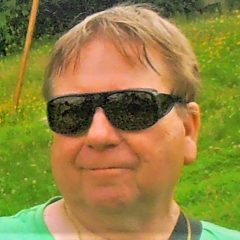
Welcome to Radio Quotidia, episode 13. This month’s theme Lost and Found, 13 minutes or so of music and musings. Quentin Bega here at the mic. I’m broadcasting from our studio in the depths of Quotidia inside a digital onion. My aim to keep you entertained for a while.
In 1965, a 24-year-old Robert Hunter was writing lyrics for a San Francisco band called The Grateful Dead. His worked mainly with Jerry Garcia over a forty-year period until Garcia’s death in 1995. In 1962, he volunteered for psychedelic chemical experiments at Stanford University, research covertly sponsored by the CIA in its MKULTRA program: other participants included Ken Kesey, author of One Flew Over the Cuckoo’s Nest and Allen Ginsberg beat poet best known for Howl.
Hunter was paid to take LSD, psilocybin, and mescaline, and then report on his experiences, which were creatively formative for him. His lyrics underpinned some of the Dead’s best-known songs. To prepare for the song at the start of this episode, here is a lovely short poem about the moon by imagist poet T.E. Hulme, who was killed in action during World War One on 28th September 1917:
Above the quiet dock in mid night/Tangled in the tall mast’s corded height/Hangs the moon/What seemed so far away/Is but a child’s balloon forgotten after play.
Most men and women who have been to outer space attest to the perspective distance gives and how fragile yet magnificent our blue earth appears from afar. Standing on the Moon, then, gives a wide perspective on life that the other song featured in this episode will fill out in its own unique fashion. [insert song]
Time and mortality were themes Roman poet Horace explored in Ode seven of the fourth book, The swift hour and the brief prime of the year/Say to the soul, Thou wast not born for aye./Thaw follows frost; hard on the heel of spring/Treads summer sure to die, for hard on hers/Comes autumn, with his apples scattering;/Then back to wintertide, when nothing stirs./ But oh, whate’er the sky-led seasons mar,/Moon upon moon rebuilds it with her beams:…we are dust and dreams.
A. E Housman, classical scholar, and poet considered this poem from which these lines are taken and which he translated to be the most beautiful in ancient literature. And these lines speak to me more and more as the years pass. I’m going to finish this episode with a song using lines from the A. E. Housman translation which I use as bookend-verses for some rather well-known lines from Ecclesiastes chapter 3 which Pete Seeger used to such great effect in his phenomenal co-written hit, Turn Turn Turn.
His co-writer (who, in fact, wrote the bulk of the lyrics) has been variously credited as King Solomon, or some unknown scribe or scribes, or for those who revere the Bible as the word of God, the co-writer would then be- God, I suppose. The mash-up of the philosophy of the Graeco-Roman worlds with the inspired verse of the Judaic text appeals to me.
And my aim here is not hubristic- as I do not want to incur the wrath of the gods, or, indeed, God! Rather, it is to celebrate the individual caught in the coils of time and circumstance and to echo the pleas for peace which become more urgent and necessary with every day that passes. The title of this song is Dust and Dreams. I’ll preface it by Wallace Stevens’ poem Lunar Paraphrase
The moon is the mother of pathos and pity./When, at the wearier end of November,/Her old light moves along the branches,/Feebly, slowly, depending upon them;/When the body of Jesus hangs in a pallor,/Humanly near, and the figure of Mary,/Touched on by hoar-frost, shrinks in a shelter/Made by the leaves, that have rotted and fallen;/When-over-the-houses,-a-golden-illusion/Brings back an earlier season of quiet/And quieting dreams in the sleepers in darkness—/The moon is the mother of pathos and pity.// [insert song]
Next week features a song inspired by the atrocities we have witnessed in Ukraine following Russia’s invasion. The second song is one about parting.
Credits: All written text, song lyrics and music (including background music) written and composed by Quentin Bega unless otherwise specified in the credits section after individual posts. Illustrative excerpts from other texts identified clearly within each podcast. I donate to and use Wikipedia frequently as one of the saner sources of information on the web.
Technical Stuff: Microphone- Shure SM58; (for the podcast spoken content) Audio Technica AT 2020 front-facing with pop filter); Apogee 76K also used for songs and spoken text. For recording and mixing down: 64-bit N-Track Studio 9 Extended used; Rubix 22 also used for mixing of microphone(s) and instruments. I use the Band in a Box/RealBand 2023 combo for music composition.


